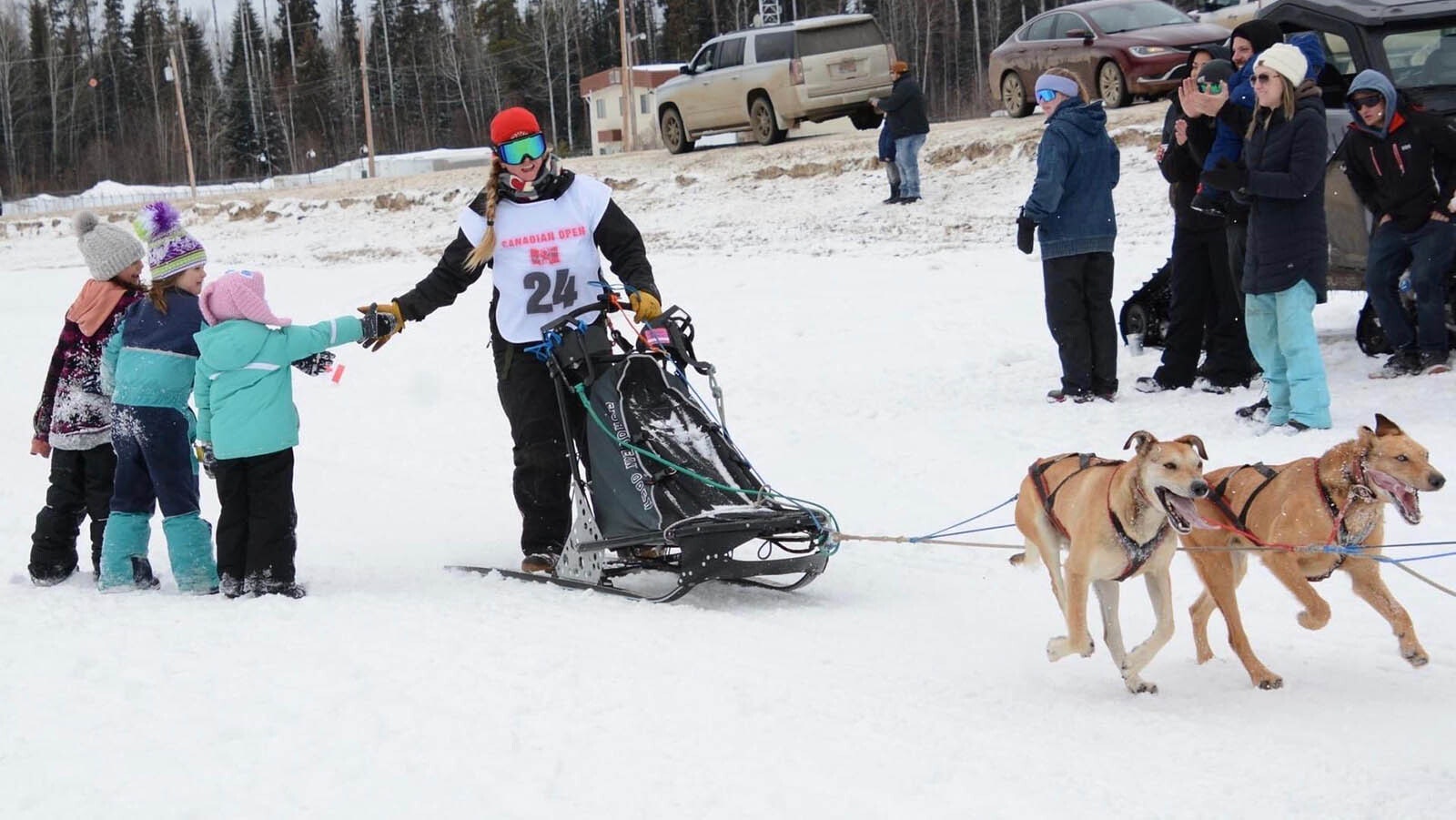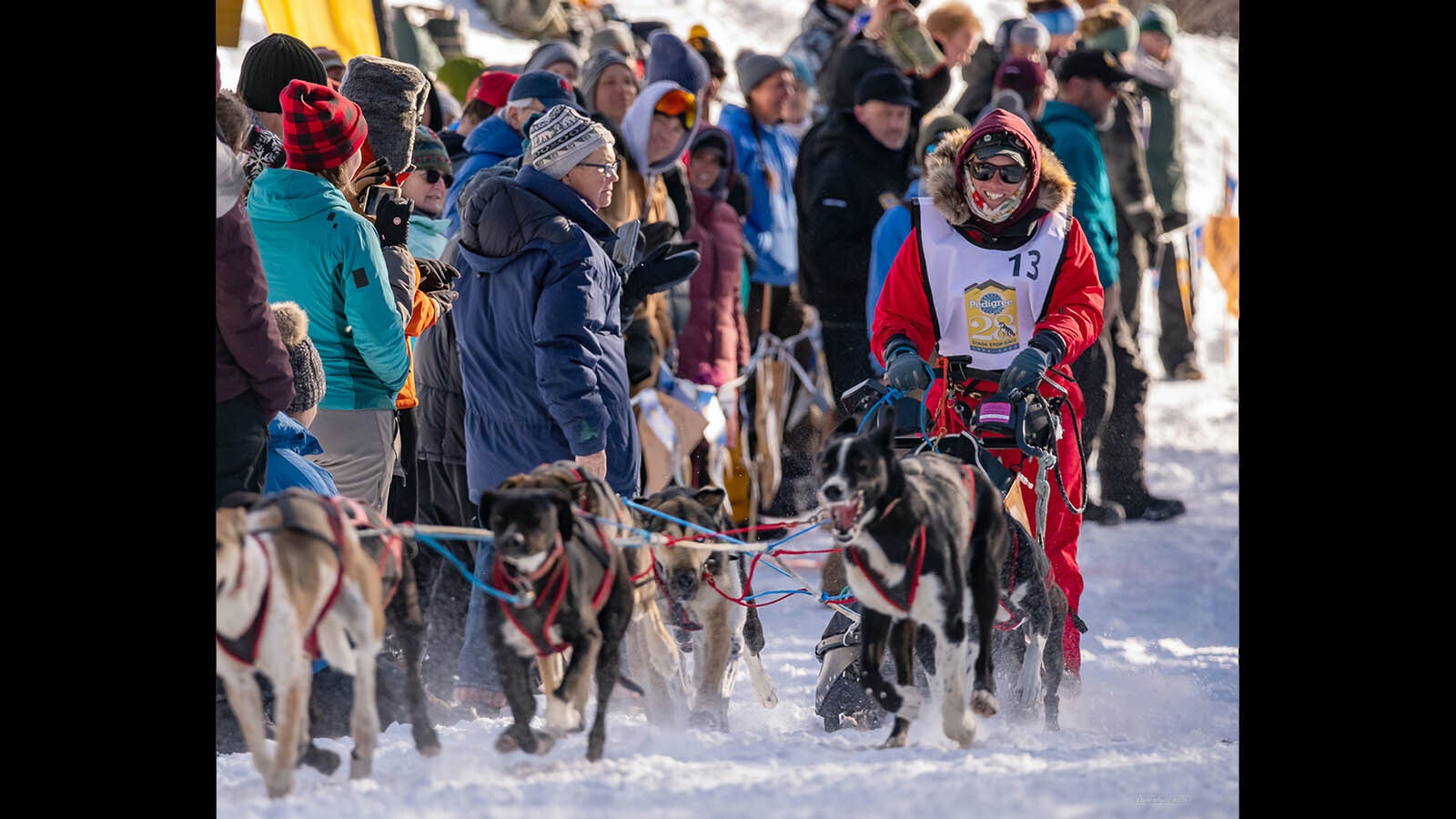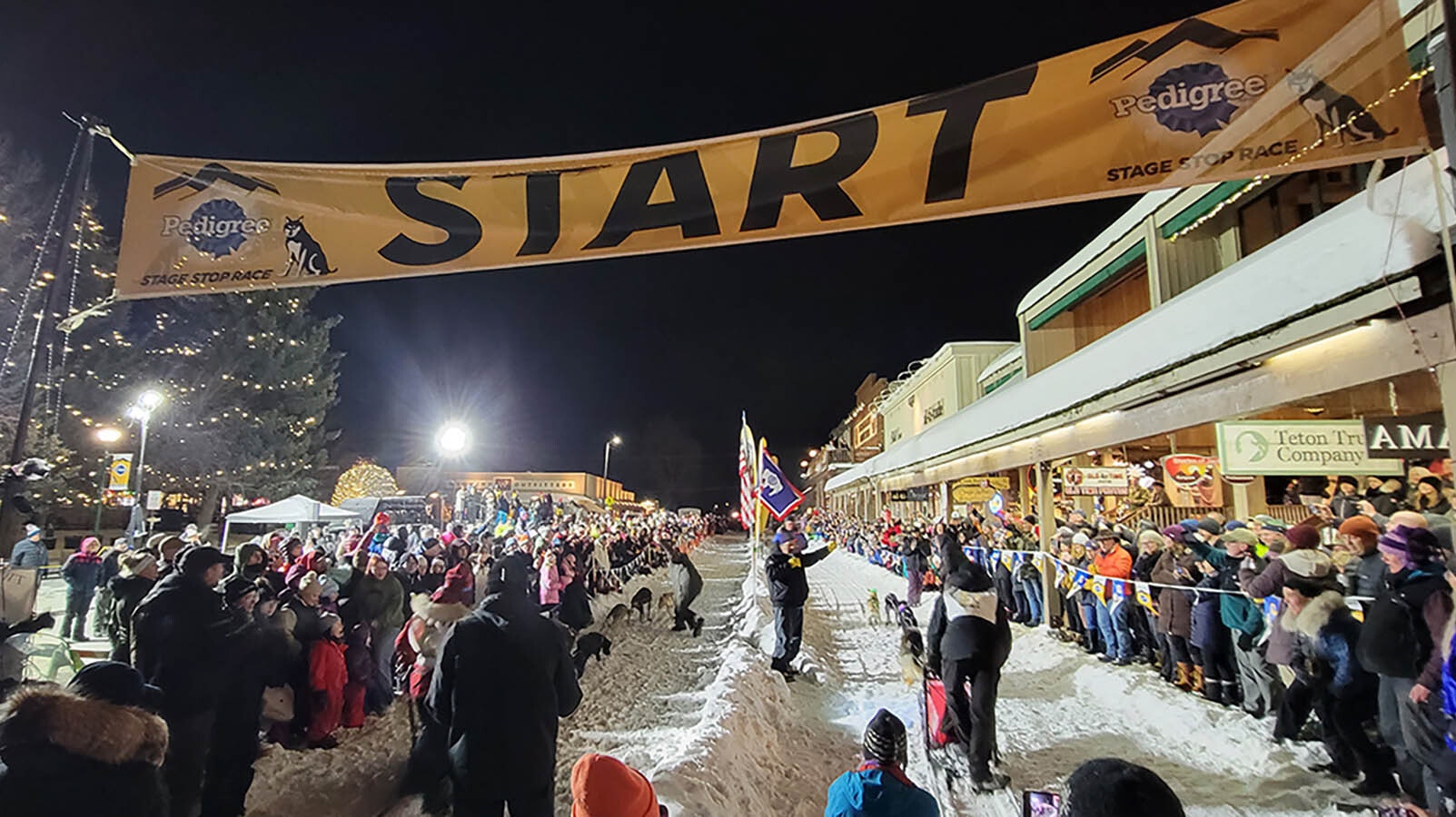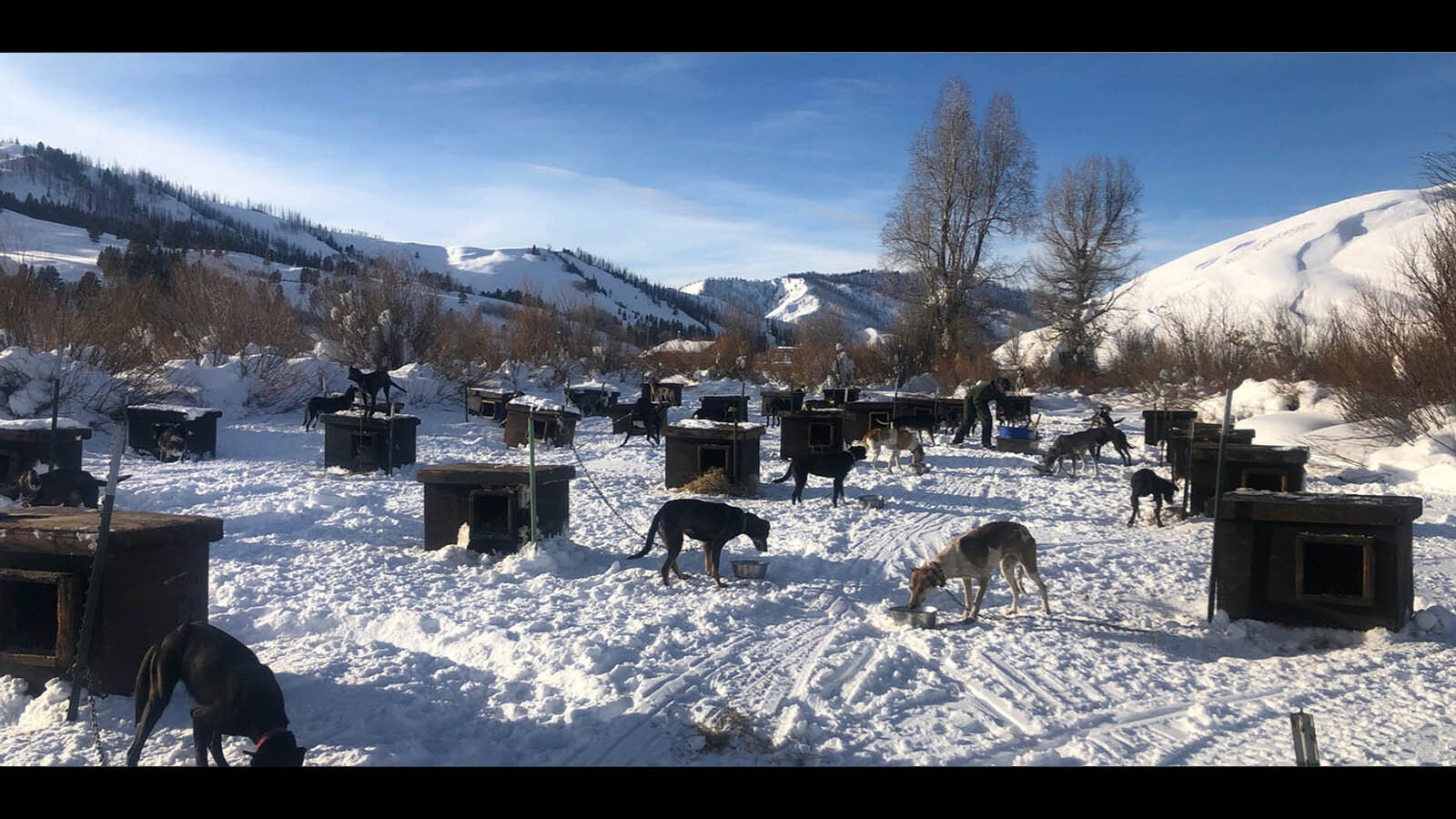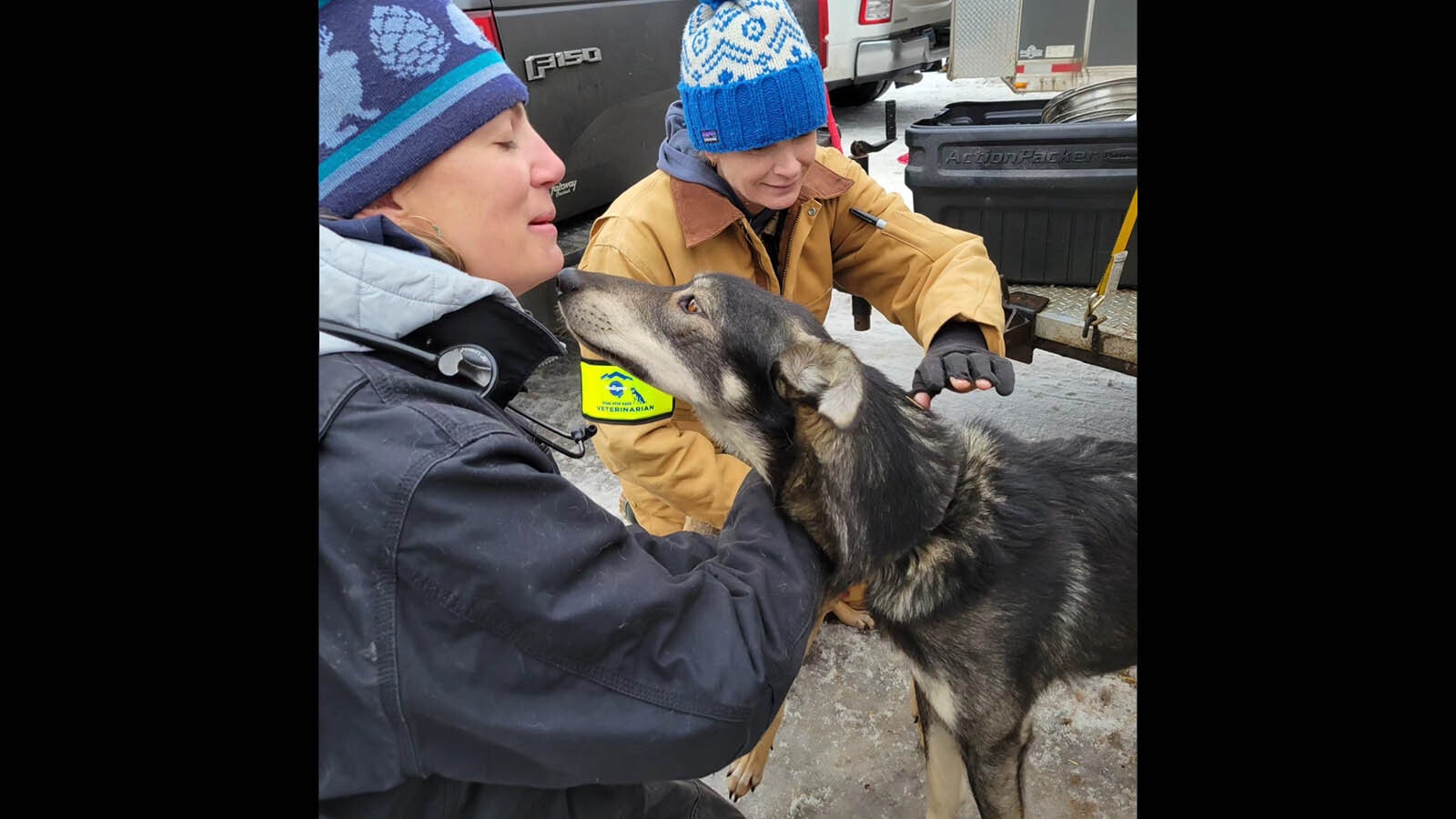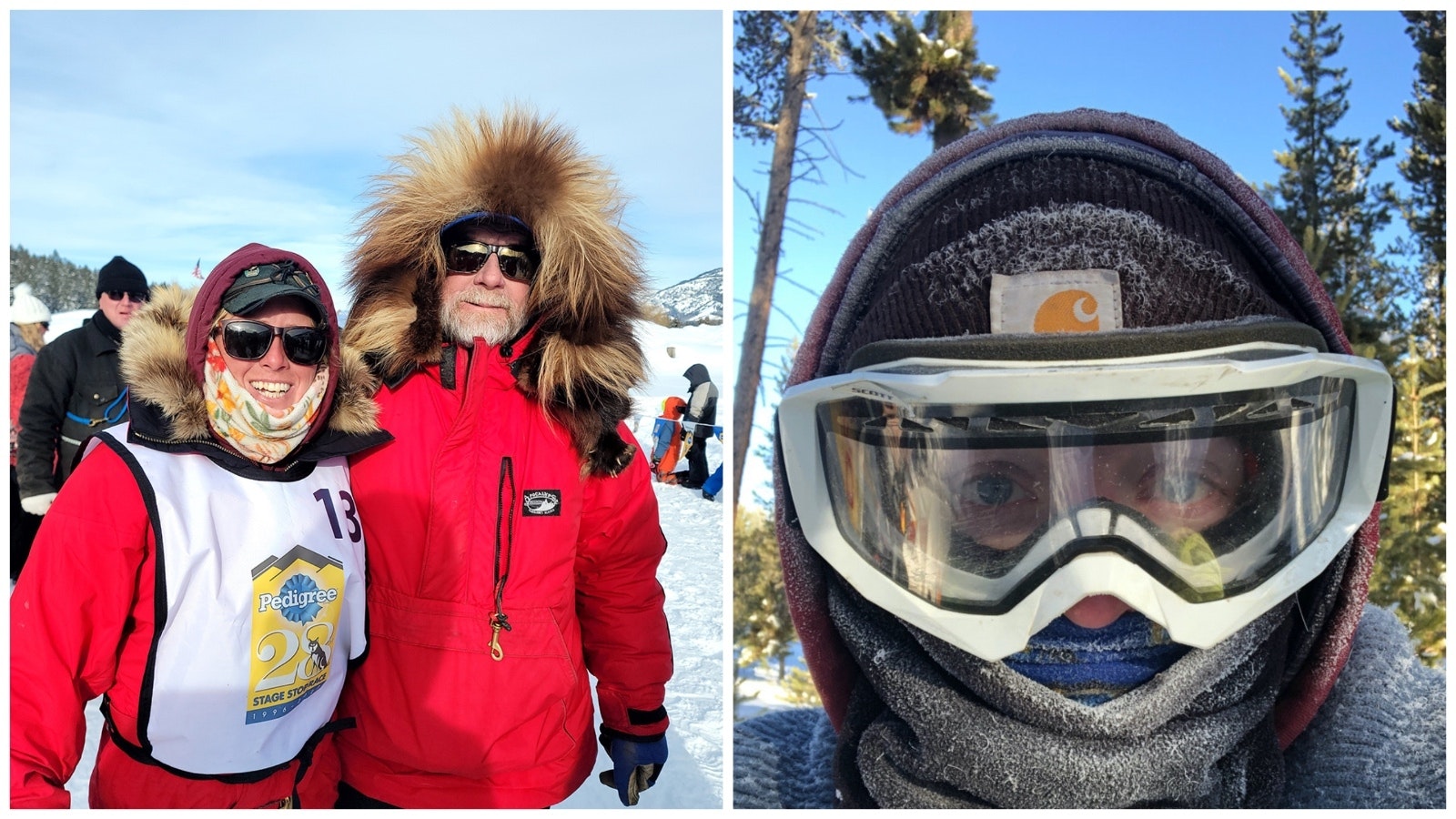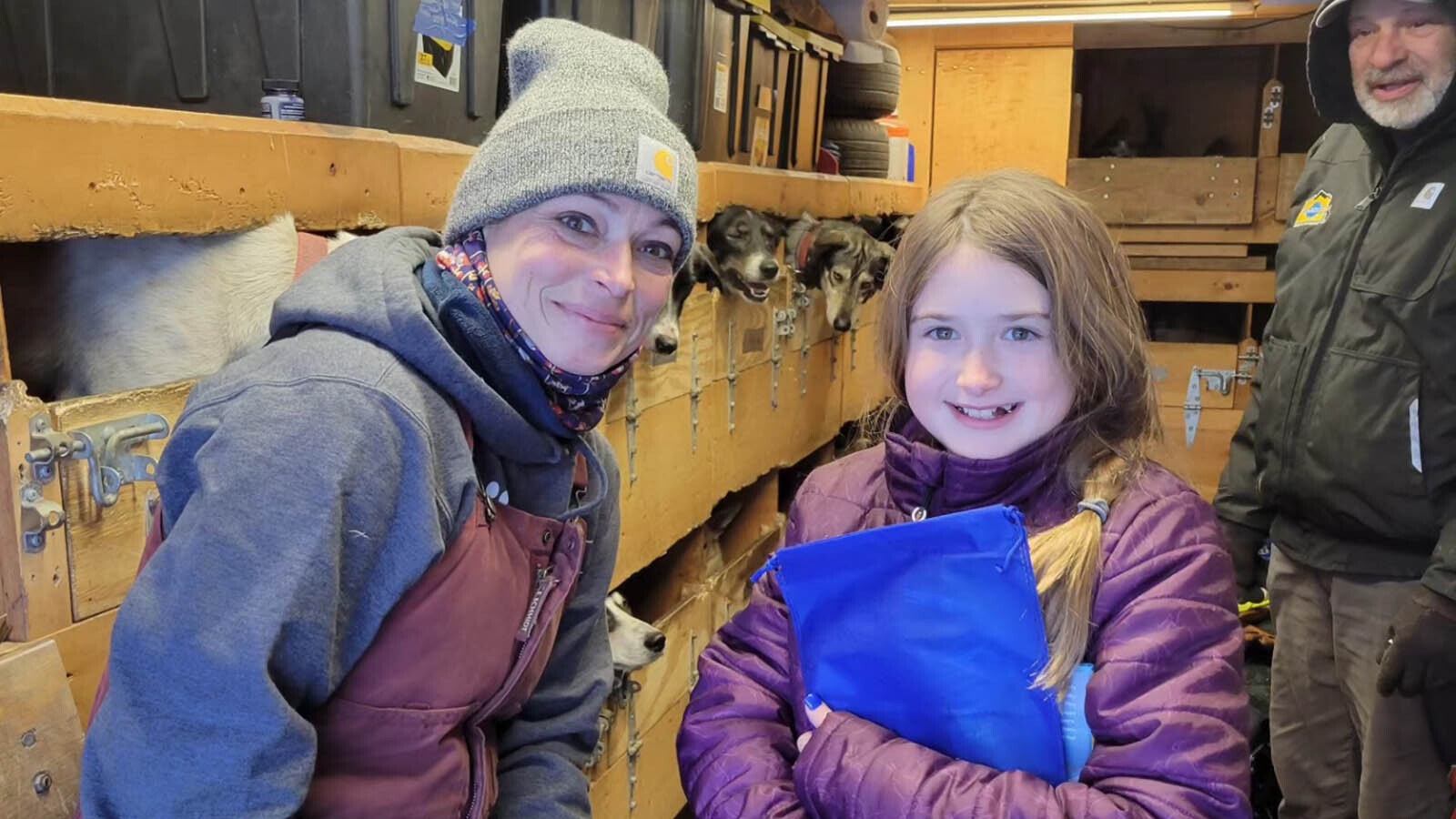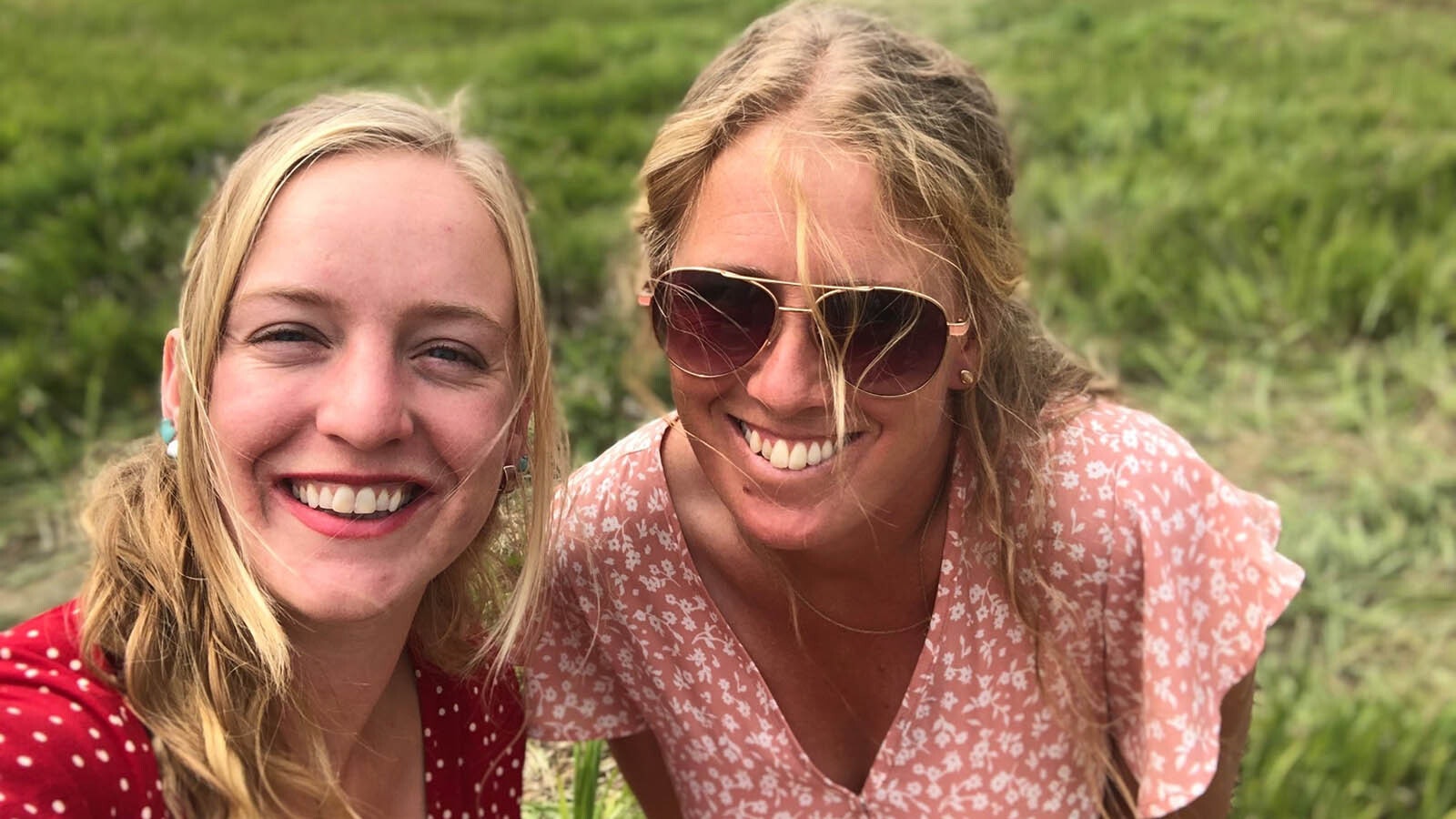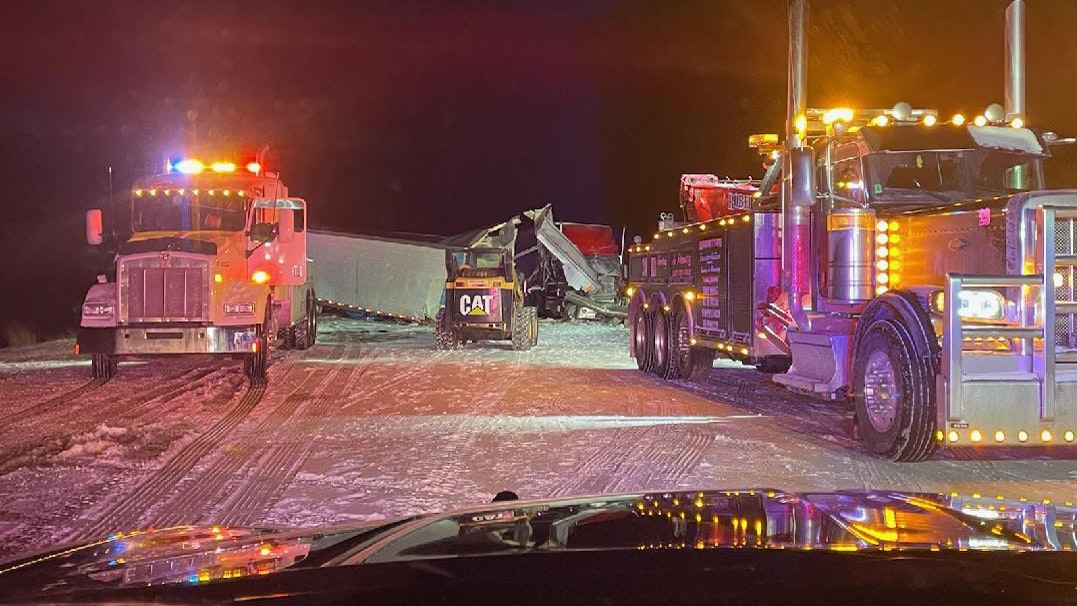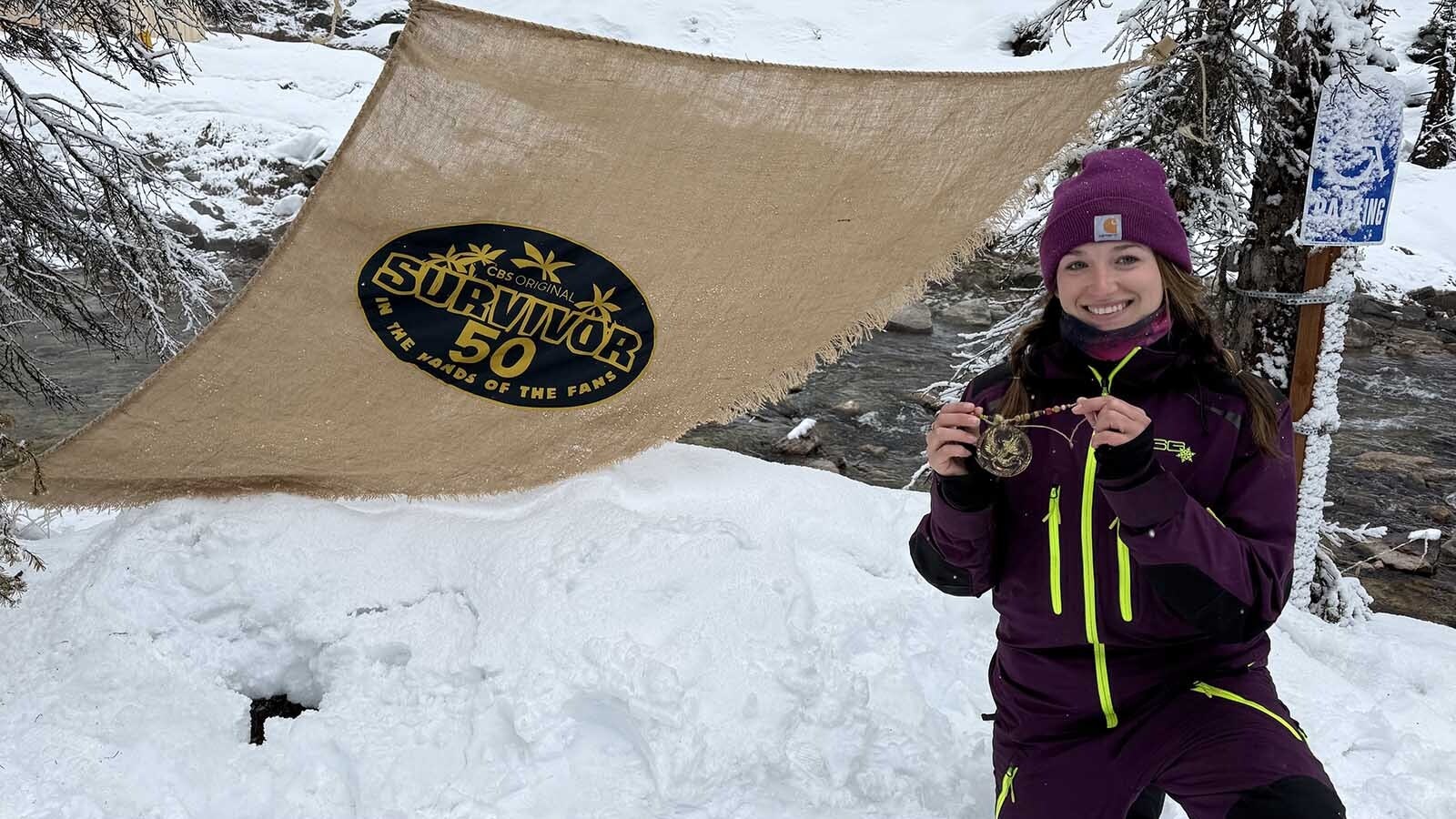“Promise me someone is going to run those dogs.”
Those were Alix Crittenden’s last words before she went under the knife for a brain tumor less than two weeks before the scheduled start of the 2024 Pedigree Stage Stop Race.
First, the most important thing: The 36-year-old musher from Bondurant, Wyoming, is doing very well. She’s out of surgery and making first steps toward a long recovery.
Medical bills are insane for Crittenden and her husband Sam.
Second, it will be a little-known driver who takes Crittenden’s spot in the 29th running of the dogs.
Jess Moore, 29, was a newborn the year the legendary sled dog race launched in 1995. Moore will step on the runners for the first major event of her life.
She has big mukluks to fill.
Crittenden finished runner-up behind five-time defending champion Anny Malo in last year’s race.
If anyone could dethrone mushing maven Malo from Quebec, Canada, it was going to be the hometown favorite Crittenden. Now that weight falls to a born-and-raised local product who traces her roots back to homesteading Jacksonites.
Understudy Takes The Reins
Frank Teasley is not only the Stage Stop Race founder, he has always run a local team of his own.
His 200-plus dog kennel at the mouth of Granite Canyon midway between Jackson and Pinedale runs enough sled dog tours to buy kibble for his breeding program, which has improved and evolved over time.
For many years, Frank’s wife Stacy ran Teasley’s best dogs until Crittenden took over in 2014. Since then, the Bondurant buckaroo has gradually improved her finishes until she was nipping at the heels of 2023 race winner Malo last year.
Can Moore step in and step up where Crittenden leaves off? Teasley thinks so.
“Look, this took the wind out of our sails. Alix was heathy as a horse two weeks ago until she had a seizure,” Teasley said. “But Alix made me promise Jess would drive the team. So, here’s her shot.”
A Cinderella Moment
A year ago, the kennel manager at Jackson Hole Iditarod was scooping poop and schlepping tourists to Granite Hot Springs as part of her day job with Frank Teasley’s sled dog tour company.
A month ago, Moore was helping Crittenden organize the eight-day race — scheduling vet checks, stacking water bowls and fluffing dog beds.
Not to make light of what handlers do — they are responsible for anything and everything to keep a musher’s mind clear. But Moore was not exactly prepping to get in the game. She has always been the understudy — like the backup to Patrick Mahomes — and not many outside the tight circles of mushing would recognize her on the trail.
“I was always thought of as the backup driver if Alix could not go for some reason,” Moore said. “The day Alix found out she had a brain tumor, she told me, ‘I want you to drive this team. We did not put in all this work for this team not to run.’”
Teasley ran the Iditarod — The Last Great Race on Earth — in Alaska nine times. He has connections galore in the dog sled racing world. One phone call and he could have an elite musher run his A team.
Teasley didn’t pause a beat. He went with the rookie close to home.
“Jess knows every dog on this team. She raised them from pups. She trained them,” Teasley said. “It’s not like she is learning. The oldest dog on the team is 4 and a half, and she has been with me seven years.
“There’s an age-old saying in dog mushing. ‘You can’t make to the finish line until you make it to the starting line.’ Jess is our girl. She has the overwhelming support of the whole team.”
Her First Rodeo
Moore will have an experienced and loyal support team at her disposal.
A ski waxing specialist was tapped from the JHI kennel operation to make sure the sledding is smooth. Moore’s boyfriend Steven will drive the dogs and gear from stage to stage, and hopefully keep Jess sane and grounded.
Alix’s sister, Jessie Pearson, will also pitch in. The physical therapist has become indispensable to the team.
“Jessie is so important. She has a really good feel about what is going on with muscles and tendons, and translates that from humans to dogs,” Moore said. “She can pinpoint where dogs might be a little tight and we can get them massaged during the stops or swap them out.”
But Moore will be alone with her dogs and her thoughts out on the trail. Mushing is a mental discipline more than one might guess. Certainly, more than just hanging on and barking “gee” and “haw” every once in a while.
Let The Dogs Run
Not knowing how her mind and body will react under the strain, Moore will concentrate on what she does know: her canine athletes.
“Experience in this race is huge, but so is knowing the dogs,” Moore said. “I helped train them, so I know them as well as anyone could. And not only knowing them individually, but I know their lineage, their parents and the characteristics they bring.
“Knowing how they are going to handle the travel, strangers at the starting line, these things will all factor in to what dogs I bring and choose to run.”
Each of the 15 racers picks 16 dogs from their kennels to be included in their “pool.” From those, mushers will select which 12 will be available to hook up at any given stage. This might be anywhere from eight to all 12 on the line, depending on the leg and snow conditions.
Moore has learned a thing or two from Crittenden, and she has studied the habits of other top mushers.
“Alix is pure grit. She’s about as tough and hardworking as they come,” Moore said of her mentor. “Plus, being a part of the Stage Stop all these years has prepared me for the highs and the lows. It is a really long race and you need to conserve. I have put together some patterns and habits that I have noticed other mushers doing.”
The tightknit community of mushing is uniquely distinguished from just about any other sport. Competitors are usually friends first. Generator crapped out? Sled broke? Need an extra trailer? Racing teams are generous as can be — to a degree.
“Laura [Bontrager], Anny [Malo], Cathy [Rivest], Rachel [Courtney], Austin [Forney]. I can honestly say there is a not a team in this race I am not friends with,” Moore said.
But will things be different now that Moore is wearing a bib?
Blonde Ambition
In many ways, Moore is the logical stand-in for Crittenden if the heart is allowed to do the choosing.
In a race field that includes pedigree up the wazoo with generational breeding operations from Canada, revered European competitors from France and Germany, and the best in the U.S. from Minnesota, Michigan and Colorado, what chance does a local rookie Wyoming musher have even if her boss invented the race?
Yet it was Crittenden who took Teasley’s team from interesting novelty to puncher’s chance to legit contender in a few short years. Moore takes a load of credit for the improvement as well.
And talk about your underdogs.
Crittenden runs Sleeping Indian Outfitters with her husband Sam out of tiny Bondurant. The “town” is barely more than a wide spot in the road 34 miles south of Jackson. It’s one of those highway annoyances to drivers trying to make time where the speed limit drops from 70 to 50 mph for a few hundred yards.
It’s a place that’s defined by its residents who, in turn, define the place — a rugged and remote dot on the map where a hardy handful huddle against the cold, united in the hardship it takes to make it through a nine-month Wyoming winter.
If that place made Crittenden the tough SOB she is today, what does Moore trace her roots to?
Jess’s great-grandfather is Donald “Doc” MacLeod. He’s the kind of person so beloved by a community they name geography after him. The longtime doctor has his own street, his own lake.
MacLeod’s descendants still live up Granite Creek where Doc spent so much of his life. It was there Moore watched Teasley’s dogsled teams zoom past every winter on their way to the popular hot springs at the end of the 10-mile road.
“I’d like to be a part of that,” Moore thought to herself.
Moore paid her dues, earned her stripes. Now Teasley’s top trainer gets to step into a new spotlight.
“What a story. Jess was born and raised here in Granite Creek, graduated from Jackson Hole High School,” Teasley said. “Does she have a chance? I’ve been at this 45 years and I can say I would not sleep on this one.
“You can sneeze and go from first to last in this race. We’ll let the cards fall where they may. I'm going to let Jess be Jess and enjoy this one as a fan.”
Weather, Or Not
As it always does, weather will play a big factor in this year’s running of the Stage Stop. What a difference from last January when the snow was piled high and one leg had to be cancelled because it was too cold for the dogs to safely run.
This year, snow is hard to find and temperatures are expected to be moderate, if not downright warm for sled dogs.
“The trail varies so much from year to year,” Moore said. “This year, we are going to have to keep an eye on the temperature. Dogs don't do as well when it’s warm. Snow conditions and temps will factor into how many dogs to hook up each day as well.”
Teasley said he is not too concerned about the low snowpack. His race crews and organizers — many of which are volunteers — have done a great job getting the trails ready. From stops at Lander, Pinedale, Kemmerer, Alpine and Driggs, Idaho — Teasley said, “We are dialed.”
Teasley explained he modelled the Stage Stop Race after the Tour de France where mushers race all day and then spend the night at a stopover in a new community.
Nothing against the Iditarod, I ran it nine times,” Teasley said. “But with that race, you leave the starting line at Anchorage and it’s nine days of watching paint dry. It’s hard for the general public to stay engaged.”
The Pedigree Stage Stop Race features GPS tracking of teams that gives real-time location and other data such as speed and current place in the standings.
Huge crowds welcome the racers to the finish line every afternoon and see them off the next morning. In between, racers attend a community banquet where fans are able to meet the mushers and their dogs.
There also was the hope that the Stage Stop would put more of a focus on the canine athletes. They are vet checked carefully throughout the race, if not pampered with nightly 30-minute massages.
Teasley’s idea was to make a sport he loves more accessible to the average person. He especially wanted to see a new generation of fans inspired. Pre-race showcases at area elementary schools are a mainstay in western Wyoming. Kids love dogs.
“Just yesterday, on one of my commercial tours, there was a family and their young daughter who paid to take a trip out to the hot springs,” Teasley shared. “And that daughter is a junior musher in this year’s race. She is fired up to run, I’ll tell you that. That right there is the future of this sport.”
And with Moore, the impression-making has come full circle. Literally.
Moore saw her first JHI sled dog from her porch while she was still in diapers. This weekend, she’ll race her own team in the only sled dog race of its kind in the world.
About The Stage Stop
The 2024 Pedigree Stage Stop Race began Friday with a ceremonial start in Jackson, Wyoming, and begins its first stage Saturday. Each stage runs 30-35 miles.
- Stage 1: Jan. 27, Teton County
- Stage 2: Jan. 28, Lander
- Stage 3: Jan. 29, Pinedale
- Stage 4: Jan. 30, Big Piney/Marbleton
- Stage 5: Jan. 31, Kemmerer
- Travel day: Feb. 1
- Stage 6: Feb. 2, Alpine
- Stage 7: Feb. 3, Driggs, Idaho
- The race is limited to 25 sled dog teams, which compete for a share of a $165,000 purse, with the winner getting $10,000.
Did You Know? The winner of the first Stage Stop race in 1996 was legendary musher Rick Swenson, a five-time winner of the famous Iditarod Trail Sled Dog Race from Willow to Nome, Alaska.
Jake Nichols can be reached at jake@cowboystatedaily.com.

